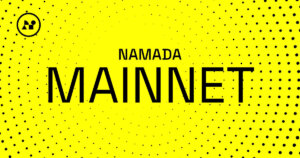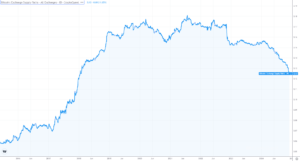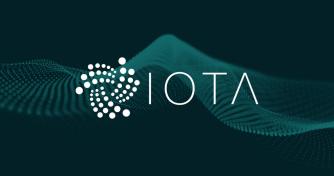 IOTA Unveils Qubic: The Key to an “IOTA-based World Supercomputer?”
IOTA Unveils Qubic: The Key to an “IOTA-based World Supercomputer?” IOTA Unveils Qubic: The Key to an “IOTA-based World Supercomputer?”

Photo by NASA on Unsplash
After weeks of speculation, IOTA has given clarity on its enigmatic Qubic project — or what it describes as “the most significant contribution to the IOTA stack” to date.
Aimed at facilitating smart contracts, oracles, and outsourced computation, the young Qubic protocol may be a future asset to IOTA — the 9th largest cryptocurrency by market cap.
The move will likely come as welcome news to IOTA enthusiasts, who have waited precisely a month since the team’s May 3 unveiling of the project:
We are moving rapidly towards the next epoch of IOTA, today the IOTA Foundation is excited and proud to start the official unveiling of Qubic.https://t.co/U87nKaZWnI#IOTA #Qubic
— IOTA (@iotatoken) May 3, 2018
What is Qubic?
A self-stated “work in progress”, Qubic is a new protocol layer for the IOTA ‘Tangle’.
Where IOTA may offer near-instant transaction through its DAG-based ledger technology, its architecture may have limited its application to specific scenarios — namely the Internet of Things.
Enter: Qubic — purportedly offering IOTA the functionality of a fully-fledged smart contract platform such as Ethereum — while offering the scalable, zero-fee utility permitted by DAG technology.
IOTA explains this evolution on Qubic’s own sub-domain:
“The original Qubic idea had some hard to overcome problems. The IOTA protocol was, in fact, created to help solve those problems. Indeed, IOTA was designed to become the global standard for IoT messaging and payments. Qubic follows that standard, and is made possible by fee-free IOTA transactions,”
Originally conceived in a September 2012 post on BitcoinTalk, Qubic — or Quorum Based Coin — denotes the idea of a cryptocurrency offering all the utility of Bitcoin, with none of its disadvantages.
While building on this concept, the IOTA team have quickly disclaimed that IOTA’s Qubic will not employ a new token or any form of airdrop.
Qubic: IOTA’s Secret Weapon?
While IOTA has positioned itself primarily as “Enabling the true Internet-of-Things,” the reported functionality of Qubic would suggest loftier heights are in sight.
In a manner remarkably close to Ethereum’s mission statement, IOTA describes how Qubic will ultimately “secure the IOTA Tangle: an IOTA-based world supercomputer.” When described in detail, it can be seen how deep the (Qubic) rabbit hole goes:
“Specifically, Qubic is a protocol that specifies IOTA’s solution for quorum-based computations, including such constructs as oracle machines, outsourced computations, and smart contracts. Qubic provides general-purpose, cloud- or fog-based, permissionless, multiprocessing capabilities on the Tangle.”
That is, Qubic’s broad scope would transform IOTA into a regular dynamo — a jack of all trades up against a plethora of blockchain-based rivals: smart contract platforms, distributed computing networks, oracle networks, messaging platforms, peer-to-peer cryptocurrencies, and more.
The IOTA Foundation’s track record of execution and recent momentum would certainly lend IOTA enthusiasts enough reason to place their faith in Qubic.





 CryptoQuant
CryptoQuant 
 CoinGlass
CoinGlass 








































































